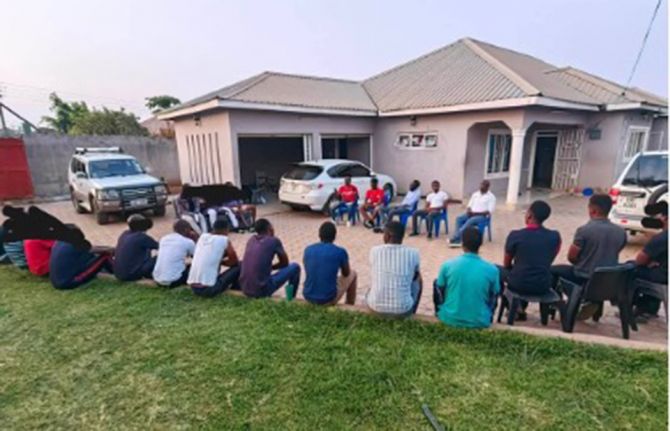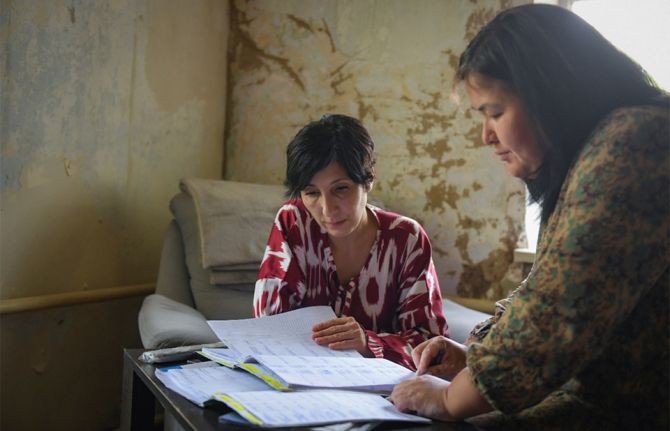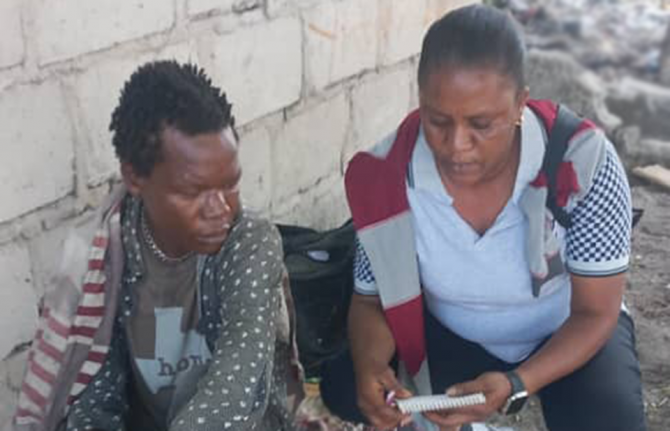

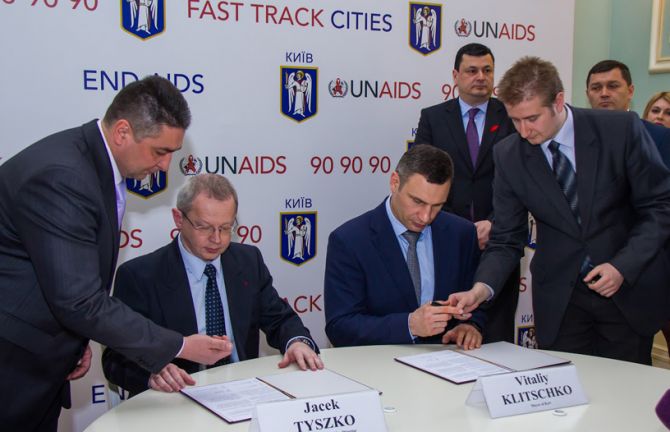
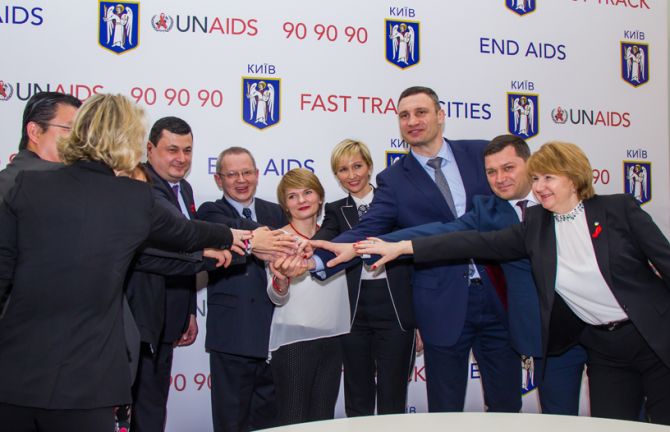
Update
Kyiv commits to ending the AIDS epidemic by 2030
06 April 2016
06 April 2016 06 April 2016Ahead of a Fast-Track cities event to take place in June at the 2016 United Nations General Assembly High-Level Meeting on Ending AIDS, the Mayor of Kyiv, Vitali Klitschko, has committed the city to the UNAIDS Fast-Track approach to end the AIDS epidemic.
The Fast-Track cities event in New York, United States of America, on 6 June will highlight the leadership role of cities in the AIDS response and showcase urban innovations to achieve the Sustainable Development Goals, including the target of ending the AIDS epidemic.
There are around 223 000 people living with HIV in Ukraine, with about 14 000 new HIV infections in 2014. Around one in five adults living with HIV has access to antiretroviral therapy.
Participants at the event at which the commitment to the Fast-Track approach was made included Ukraine’s Minister of Health, Alexander Kvitashvili, the United States’ Ambassador, Geoffrey R. Pyatt, France’s Ambassador, Isabelle Dumont, and the Executive Director of the Kyiv Network of People Living with HIV, Lada Bulah.
Quotes
“We should bear our full responsibility to the people of Kyiv and join hands with the city and international partners to prevent the spread of the disease and do everything to end AIDS.”
"Mr Klitschko is sending a strong signal of support for Kyiv’s commitment to the UNAIDS Fast-Track approach, the 90–90–90 treatment target and the zero discrimination campaign. This level of commitment and leadership allows us to believe that ending AIDS by 2030 is possible.”
Region/country
Related

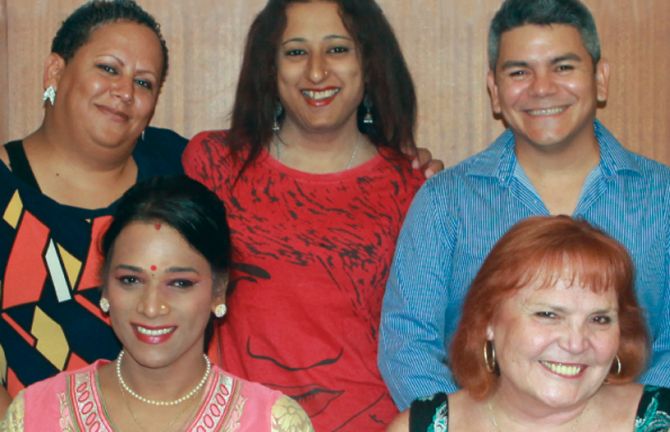
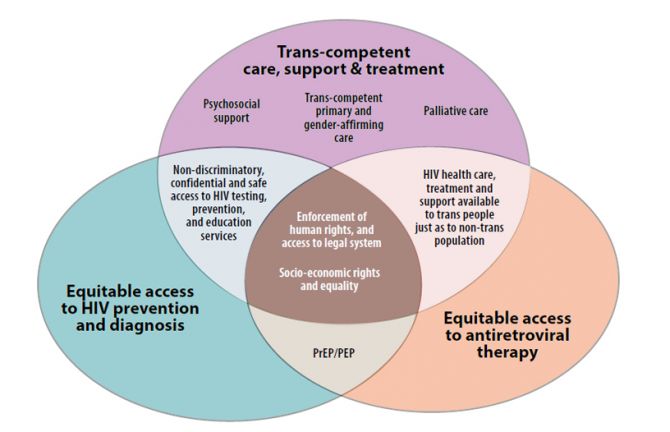
Update
Implementing comprehensive HIV and STI programmes with transgender people
06 April 2016
06 April 2016 06 April 2016In collaboration with UNAIDS and other partners, the United Nations Development Programme (UNDP) and IRTG, a Global Network of Trans Women and HIV, have released a new publication today entitled Implementing comprehensive HIV and STI programmes with transgender people: practical guidance for collaborative interventions. The publication presents concrete steps that public health officials, health workers and nongovernmental organizations can adopt to implement HIV and sexually transmitted infection (STI) programmes with transgender people.
Topics covered in the publication include community empowerment and human rights, addressing violence, stigma and discrimination, and delivering transgender-competent services, especially for HIV and STI prevention, diagnosis, treatment and care. The publication also covers community-led outreach, safe spaces and the use of information and communications technology in service delivery. It describes how to manage programmes and build the capacity of organizations led by transgender people and shows how services can be designed and implemented to be acceptable and accessible to transgender women. Wherever possible, it gives particular attention to programmes run by transgender organizations.
The publication was developed in collaboration with transgender people and advocates, service providers, researchers, government officials and representatives of nongovernmental organizations from all over the world. UNDP and IRTG coordinated its production, with the support of the United Nations Population Fund, the University of California, San Francisco, Center of Excellence for Transgender Health, the Johns Hopkins Bloomberg School of Public Health, the World Health Organization, the United States Agency for International Development, the United States President’s Emergency Plan for AIDS Relief and UNAIDS.
The document is based on recommendations included in the Consolidated guidelines on HIV prevention, diagnosis, treatment and care for key populations, published in 2014 by the World Health Organization.
Transgender women continue to be heavily affected by HIV, being 49 times more likely to become infected with HIV than non-transgender adults.
Quotes
“Discrimination, violence and criminalization deter transgender people from getting the services they need to be healthy and stay healthy. This tool helps planners put into action comprehensive programmes across the whole spectrum.”
“There is an urgent need to ensure that community engagement, policies and programming for transgender people are implemented. This publication, developed with the engagement of transgender activists globally, is an important step forward to making sure this happens.”

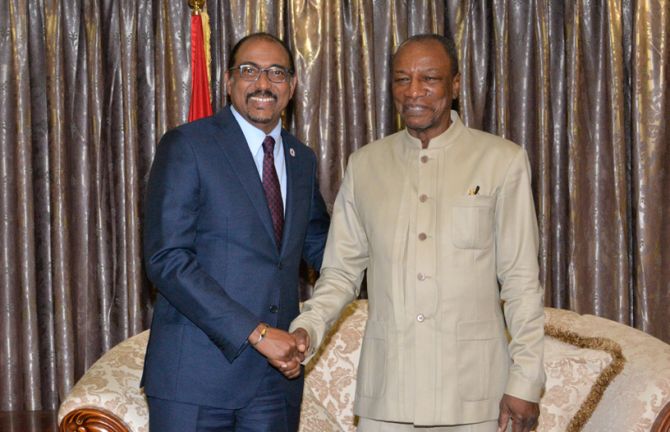
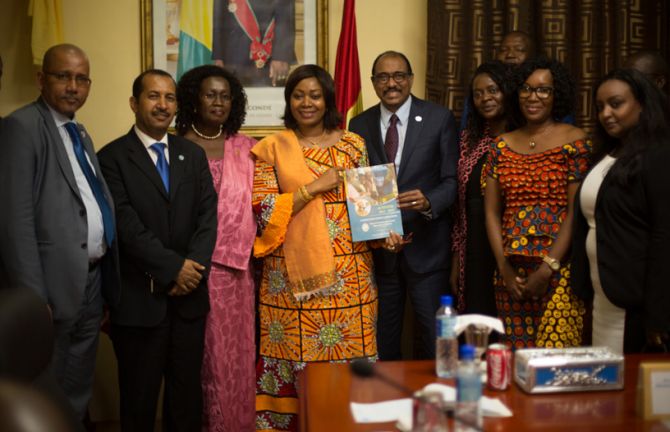
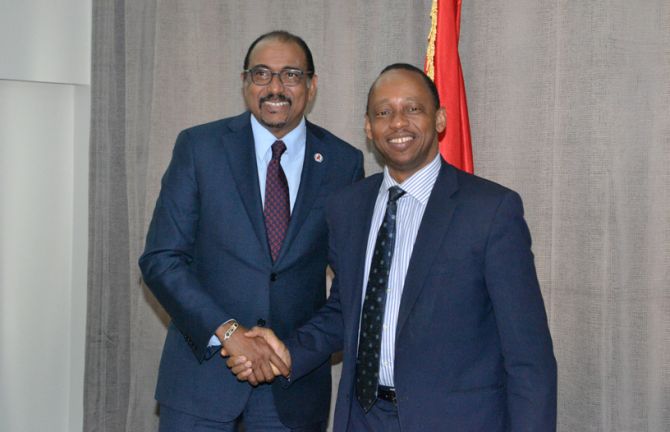
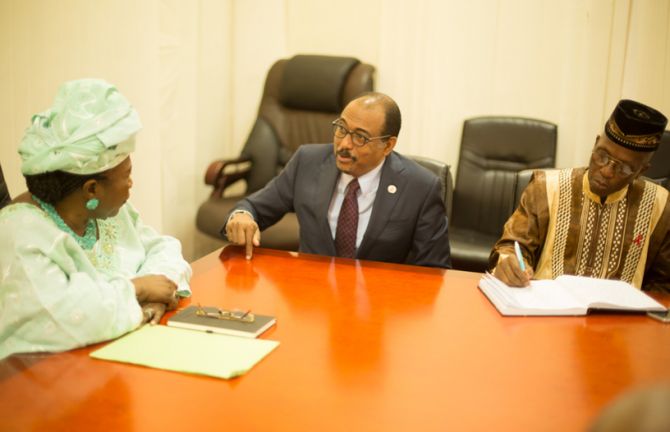
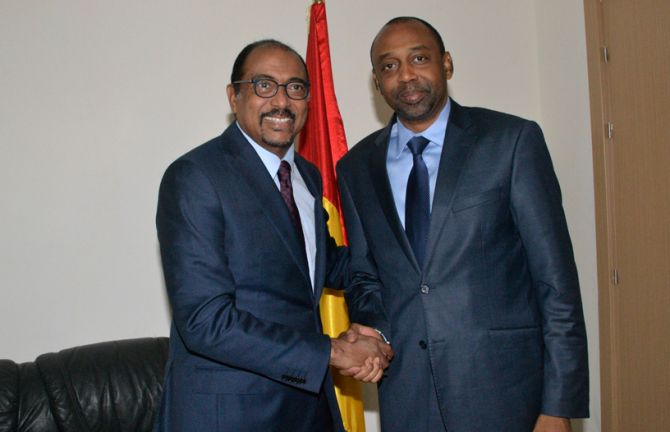
Update
Strengthening the health system and HIV response in Guinea
01 April 2016
01 April 2016 01 April 2016Guinea’s health system was devastated by the Ebola outbreak that swept through the country in late 2014 and early 2015. More than 11 300 people died in Guinea and in neighbouring Liberia and Sierra Leone, which are slowly recovering from the crisis.
During a meeting with Guinea’s President, Alpha Condé, on 30 March, UNAIDS Executive Director Michel Sidibé praised the efforts undertaken by the government and its partners to respond to the crisis and contain the spread of the Ebola virus. Mr. Sidibé said that the AIDS epidemic and Ebola outbreak were similar in many ways, from the pervasive stigma and discrimination faced by people affected to the medical challenges posed. He also commended the government for its continued commitment to end the AIDS epidemic and discussed its plans to strengthen domestic investment in HIV services and programmes throughout the country.
In meetings with the Prime Minister, the Minister of Foreign Affairs and the Minister of Health held during his three-day visit to the country, Mr Sidibé stressed the importance of strong and sustained investment to end the AIDS epidemic. With the First Lady of Guinea, Djene Kaba Condé, he spoke about maternal and child health and the measures required to ensure all babies are born free of HIV and that their mothers stay healthy.
Guinea offers antiretroviral treatment to all people living with HIV free-of-charge. Coverage in 2014 was estimated at 27% among 120 000 people living with HIV.
Quotes
“The success of our future development partnership will depend on greater mutual transparency and a more systematic investment in taking ownership.”
“If we are everywhere, we are nowhere—-and, most importantly, we are not where we are supposed to be. We need focused delivery for the people.”
Multimedia
Region/country
Related



Update
UNAIDS and Russian Olympic Committee join forces to raise awareness about HIV
24 March 2016
24 March 2016 24 March 2016UNAIDS Executive Director Michel Sidibé and the President of the Russian Olympic Committee and First Deputy Chairman of the Russian State Duma, Alexander Zhukov, signed an agreement on 23 March to join forces to accelerate the global goal of ending the AIDS epidemic. The memorandum of understanding was signed on the sidelines of the fifth Eastern Europe and Central Asia AIDS Conference, being held in Moscow, Russian Federation.
The memorandum of understanding commits UNAIDS and the Russian Olympic Committee to work together to raise HIV awareness among athletes and sports fans, promote access to HIV treatment and reduce the health, social and economic impact of the AIDS epidemic. The programme will also involve addressing stigma and discrimination affecting people living with HIV, including athletes.
UNAIDS and the Russian Olympic Committee will exchange and share know-how and will involve athletes, sports associations and nongovernmental organizations in HIV prevention and awareness efforts at the national and community levels. They will also cooperate in running media campaigns and other HIV-related programmes with athletes, coaches and other opinion leaders from the sports community in the Russian Federation and internationally, particularly in eastern Europe and central Asia.
UNAIDS has been working in partnership with the International Olympic Committee on AIDS awareness and HIV prevention since 2004.
Quotes
“The Russian Olympic Committee is the first in Europe to join with UNAIDS to advance our goal of ending the AIDS epidemic. Given the Russian Federation’s love of sport and dedication to ending the AIDS epidemic, this innovative partnership will have a positive impact in the country and around the world.”
“Sport events give everyone an excellent opportunity to enjoy a healthy life and build confidence, get adequate information about HIV and combat discrimination against people living with HIV. I firmly believe that together with UNAIDS we will achieve considerable success in this area. This is extremely important in order to build a productive and healthy society.”
Region/country
Related

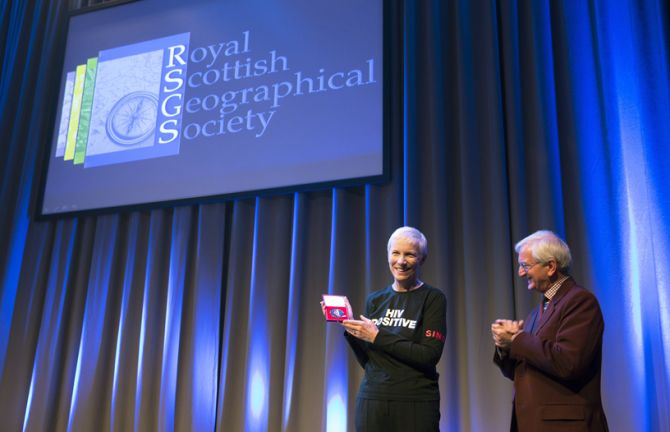
Update
Annie Lennox awarded prestigious Livingstone Medal
21 March 2016
21 March 2016 21 March 2016At a special event at the Royal Scottish Geographical Society, UNAIDS International Goodwill Ambassador Annie Lennox has been awarded the prestigious Livingstone Medal for her outstanding contribution to humanitarian work, including her work in the response to HIV.
For more than two decades, Ms Lennox has used her platform to respond to the stigma and discrimination associated with HIV, spoken out for the most vulnerable people in society and been a powerful voice for the empowerment of women and girls. She has undertaken numerous visits to affected communities in Africa and supports many nongovernmental organizations, such as mothers2mothers, which campaigns to end HIV among children. Ms Lennox has been an International Goodwill Ambassador for UNAIDS since 2010.
Awarded since 1901 and named after the nineteenth century British explorer David Livingstone, former recipients of the Livingstone Medal include the American astronaut Neil Armstrong, the New Zealand mountaineer Sir Edmund Hillary and the former Irish President and United Nations High Commissioner for Human Rights, Mary Robinson.
Quotes
“I’m truly honoured to receive such a significant and historical award as the Livingstone Medal. There have been numerous social and medical transformations since David Livingstone’s lifetime, yet there is still so much more to do before we can see the end of the AIDS epidemic, which has affected the lives of millions of men, women and children across every region of sub-Saharan Africa. My contribution has been small, but my dream would be to see the end of AIDS in the not too distant future.”
“I congratulate my dear sister Annie on this well-deserved recognition. I am proud that her crucial work has been recognized in this way. Annie's voice and activism have contributed so much to the AIDS response and to the results we are seeing today, including the Global Plan towards the elimination of new HIV infections among children by 2015 and keeping their mothers alive.”

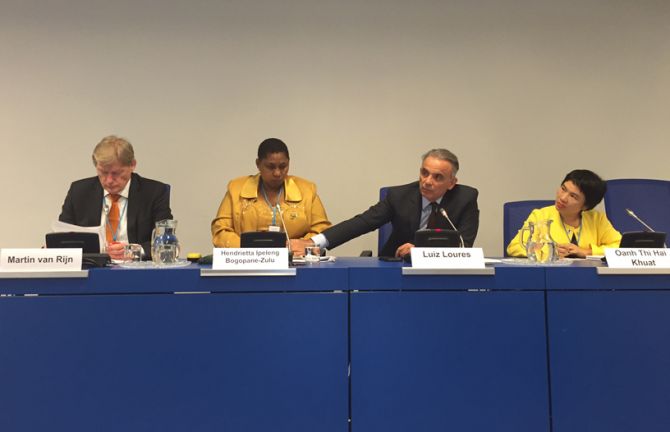
Update
Promoting health, human rights and development through a harm reduction approach
16 March 2016
16 March 2016 16 March 2016At a panel discussion held during the fifty-ninth session of the Commission on Narcotic Drugs, being held from 14 to 22 March in Vienna, Austria, representatives of the European Union, the African Union, UNAIDS and civil society have stressed the importance of adopting a harm reduction approach to ensure better health and social results for people who inject drugs.
The event, "Promoting health, human rights and development through a harm reduction approach", took place a month ahead of the United Nations General Assembly Special Session (UNGASS) on the World Drug Problem, to be held in New York, United States of America, which will adopt a new outcome document to help set the future direction of global drugs policy. Participants at the event in Vienna, who included UNAIDS Deputy Executive Director Luiz Loures, agreed that the UNGASS outcome document must include strong commitments to harm reduction strategies at the global, regional and national levels.
Panellists also underlined that the human rights of drug users must be at the centre of prevention and treatment efforts and that drug users must have a central role in developing harm reduction policies. Globally, the estimated number of people who inject drugs is 12.7 million, of whom 13% are living with HIV.
Joining Mr Loures on the panel were Martin van Rijn, Minister of Health, Welfare and Sport of the Netherlands, Hendrietta Ipeleng Bogopane-Zulu, Deputy Minister of Social Development of South Africa, and Oanh Thi Hai Khuat, Executive Director of the Center for Supporting Community Development Initiatives, Viet Nam. The discussion was moderated by Louise Van Deth of Stop AIDS Now!
Quotes
“Drug policy is not a matter of ideology but about facts. Intervention should be based on evidence and best practices from the field.”
“People are dying unnecessarily because of the lack of investment in harm reduction programmes. We know harm reduction works. We must restore dignity to people who use drugs so they can access the necessary services.”
Related

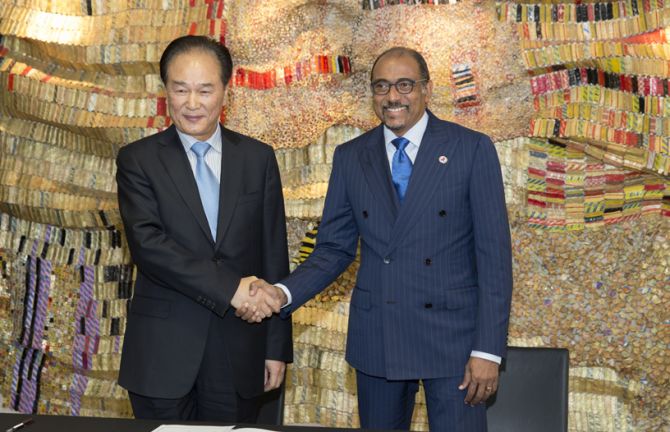
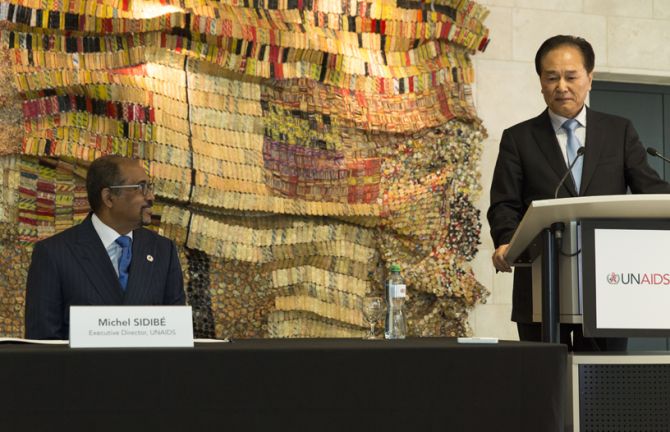
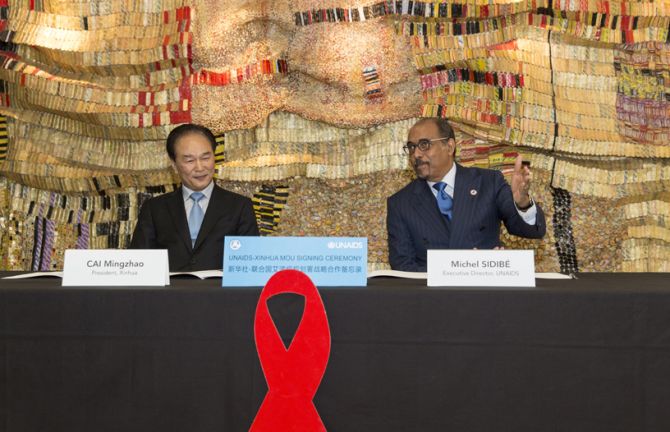
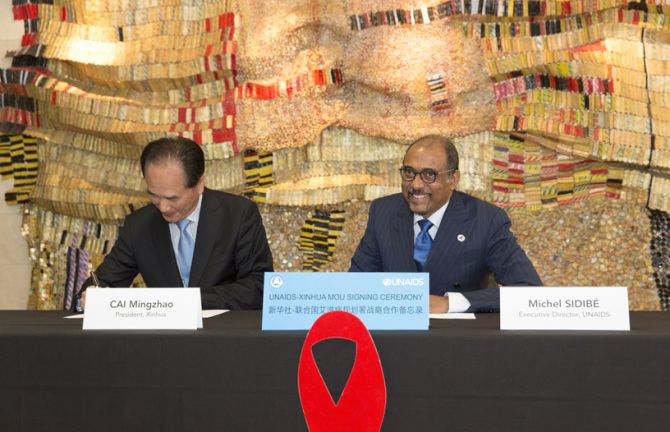
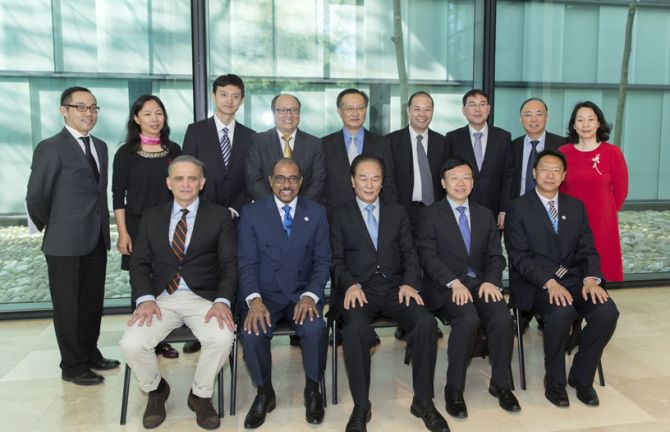
Update
UNAIDS and Xinhua renew their partnership towards ending the AIDS epidemic by 2030
18 March 2016
18 March 2016 18 March 2016The Chinese news agency Xinhua and UNAIDS have renewed their partnership for the AIDS response through a two-year extension of their memorandum of understanding. The agreement was signed during a meeting between UNAIDS Executive Director Michel Sidibé and Xinhua’s President Cai Mingzhao at UNAIDS headquarters in Geneva, Switzerland, on 18 March.
Mr Sidibé thanked Xinhua for its support of UNAIDS and highlighted the importance of strong public-private partnerships to reach millions of people with life-saving information.
Working together is key, said Mr Cai, who reiterated Xinhua’s commitment to raising awareness and advocating around key issues related to ending the AIDS epidemic in China and globally.
The UNAIDS–Xinhua memorandum of understanding was first signed in September 2011. Efforts carried out during the past years include global media campaigns to promote public awareness of HIV and support for World AIDS Day activities. The current agreement includes showcasing UNAIDS during the United Nations General Assembly High-Level Meeting on Ending AIDS in June on a giant electronic screen in Times Square, New York, United States of America. In addition, Xinhua will work with UNAIDS to publish and distribute a children’s book in China.
Xinhua is the world’s largest news agency, with more than 170 offices overseas and 31 domestic bureaus.
Quotes
"With this partnership we will reach millions, if not billions, of people and we will quicken the pace of action towards ending AIDS by 2030.”
"To achieve the ultimate goal of ending AIDS, the joint efforts of all sectors of the global community are much needed. The signature today of a memorandum of understanding is an opportunity for UNAIDS and Xinhua to strengthen our collaboration and work together to make a contribution to ending AIDS.”
Multimedia
Region/country

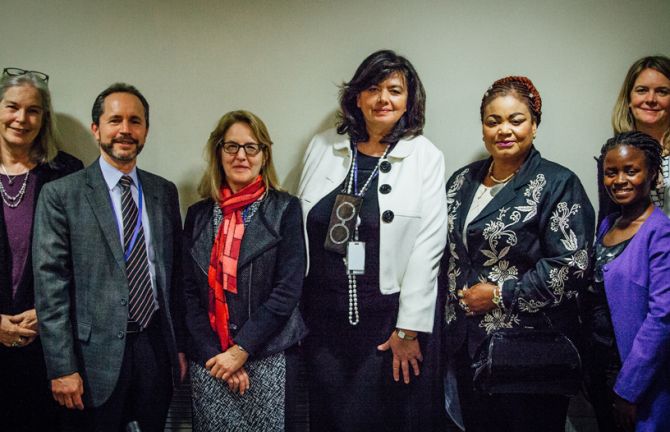
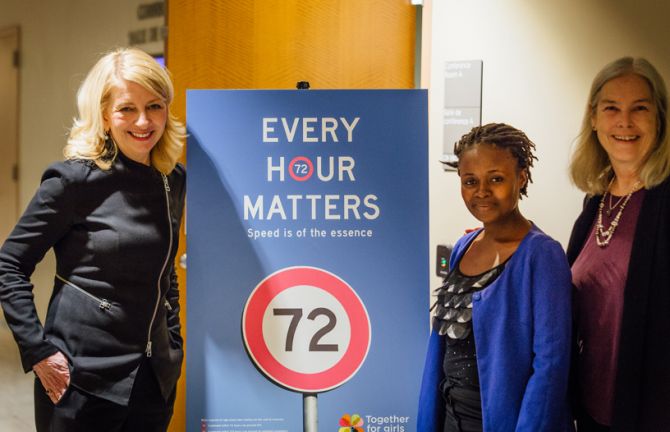
Update
UNAIDS, Together for Girls and partners call for increased attention to post-rape care
18 March 2016
18 March 2016 18 March 2016Sexual violence is a global problem. An estimated one in three women has experienced physical and/or sexual violence, and 120 million girls worldwide experienced forced sexual intercourse before their 18th birthday. Moreover, in high HIV prevalence settings women who experience intimate partner violence are 50% more likely to acquire HIV than other women.
Access to post-exposure prophylaxis (PEP) in the event of sexual violence, rape or unprotected sexual intercourse within 72 hours can reduce the risk of HIV infection by more than 80%. However, PEP alone is not enough and needs to be part of a package that includes action to address sexually transmitted infections, pregnancy, physical injury, mental illness and access to justice and legal protection.
Supporting people throughout their recovery, including in adhering to the full 28-day course of antiretroviral medicines that needs to be taken for PEP to be effective, is critical. However, people still face many barriers to freely accessing quality services, including stigma and discrimination in health-care settings.
On 16 March, Together for Girls, the World Health Organization and UNAIDS hosted a side event on the margins of the sixtieth session of the Commission on the Status of Women to promote the Every Hour Matters campaign, which will increase awareness of the importance of rapid access to comprehensive post-rape care.
Health-care workers, uniformed services, peacekeepers and others involved in post-rape care must be trained in gender-sensitive methods of relating to people who have experienced sexual violence and to deliver care without judgement and free of discrimination.
Reducing gender-based violence to lessen the risk of acquiring HIV and its impact is at the core of the UNAIDS 2016–2021 Strategy. The United Nations General Assembly High-Level Meeting on Ending AIDS, to be held in June, and the accompanying Political Declaration on AIDS are a critical opportunity to ensure that the sexual and reproductive health and rights of women and girls are promoted and their right to live in a safe environment free from violence is assured.
Together for Girls is a global public–private partnership dedicated to ending violence against children, with a focus on sexual violence. To address this human rights violation and public health problem, Together for Girls brings together the expertise and resources of many organizations working in development, public health and children’s and women’s rights to collaborate with national governments and civil society.
For more information on the campaign, see the Together for Girls website at http://www.togetherforgirls.org/every-hour-matters/.
Quotes
“We need to end the stigma and discrimination surrounding rape and we need to educate our communities about where to get help and access to post-rape services. It is important that we implement one-stop centres for post-rape care, which is critical to aiding survivors of rape.”
“It is important that we provide more information that post-rape care is there and to prevent HIV, at every corner, at every health facility in every community, to prevent HIV in that window period after rape.”
“The first reproductive right is the right not to be raped. We need to make sure girls get access to services as soon as possible to ensure that they get all the help they need.”
“Preventing rape and violence against women and children is certainly the top item on our agenda. However, it is equally important that in the unfortunate circumstance of rape, people have access to post-rape care services, as well as psychosocial and mental services.”
“We have to break the barriers that prevent women and girls accessing post-rape care and getting treatment within the time window to prevent HIV.”
Campaigns

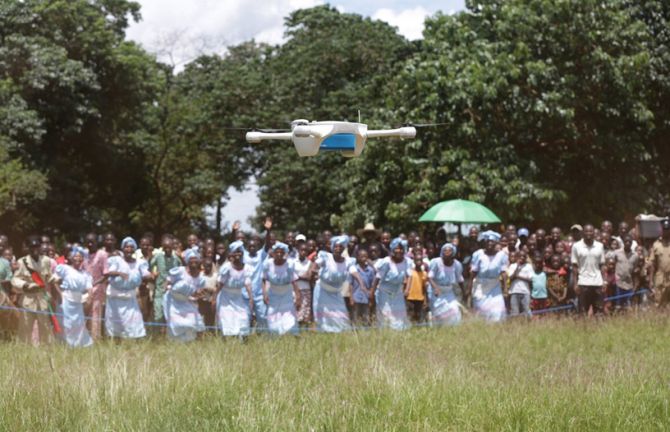
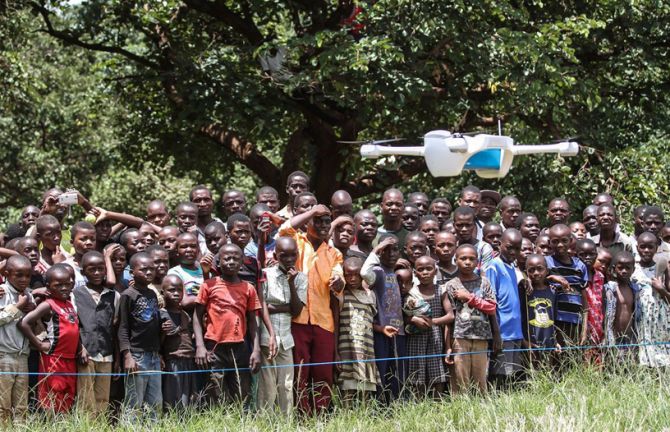
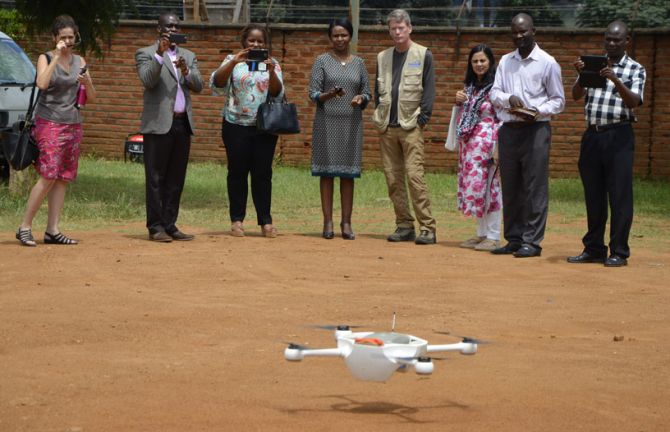


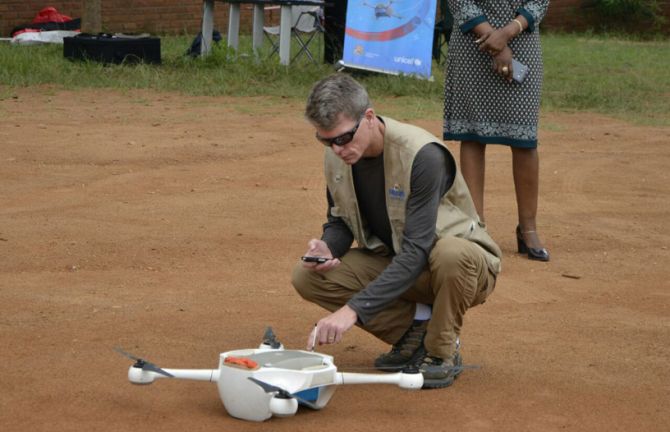
Update
Malawi tests first unmanned aerial vehicle flights for early diagnosis of HIV among infants
17 March 2016
17 March 2016 17 March 2016The Government of Malawi and the United Nations Children’s Fund are testing the use of unmanned aerial vehicles (UAVs, or drones) to explore cost-effective ways of reducing waiting times for HIV testing of infants. UAVs have the potential to cut waiting times dramatically and if the tests are successful they will be integrated into the health system alongside the use of other types of transport and other new technologies.
It currently takes an average of 11 days to transport samples from health centres to a testing laboratory, and up to eight weeks for the results to be returned. This means that mothers could be waiting for as long as three months to receive a test result for their children. The longer the delay between tests and results, the higher the loss to follow-up of children living with HIV.
UAVs have been used in the past for surveillance and assessments of disaster, but this is the first known use of UAVs on the continent for the improvement of HIV services.
The first successful test flight completed a 10 km route from a community health centre to the Kamuzu Central Hospital laboratory in Lilongwe. The test flights, which are assessing viability, including costs and safety, will continue until 18 March.
Quotes
“Malawi has pioneered a number of innovations in the delivery of HIV services, including the Option B+ policy, which puts mothers on a simple, lifelong treatment regime. We have also pioneered the delivery of results from the central laboratory to the health facilities through text messages. We believe our partnering with the United Nations Children’s Fund to test unmanned aerial vehicles is another innovation and will help in our drive to achieve the country’s goals in HIV prevention and treatment.”
“HIV is still a barrier to development in Malawi. This innovation could be the breakthrough in overcoming transport challenges and associated delays experienced by health workers in remote areas of Malawi.”
“Malawi is a country of many firsts and with the introduction of unmanned aerial vehicle technology this country is demonstrating yet again that it is committed to thinking out of the box and to innovation, so that no one is left behind in the AIDS response. UNAIDS Malawi commends the United Nations Children’s Fund and the Ministry of Health of Malawi for pushing the frontiers to scale up HIV testing of children. With this new technology, we expect to see a rapid scale-up in testing and treatment for children.”
Region/country
Related
 “Who will protect our young people?”
“Who will protect our young people?”

02 June 2025
 Impact of US funding cuts on HIV programmes in Malawi
Impact of US funding cuts on HIV programmes in Malawi

15 April 2025

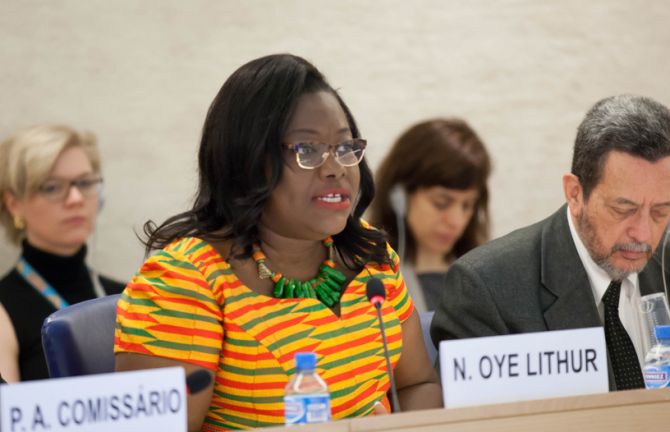
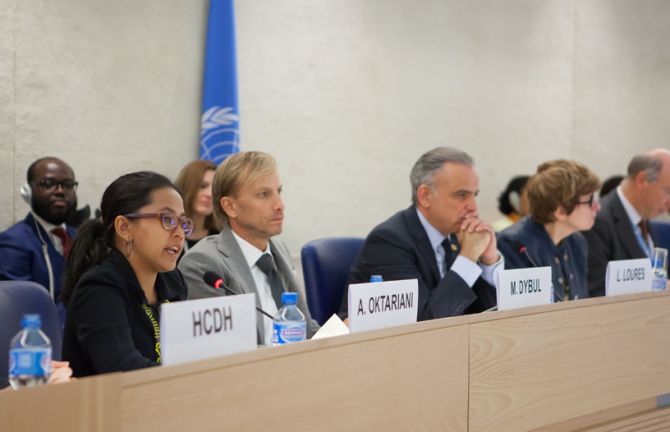
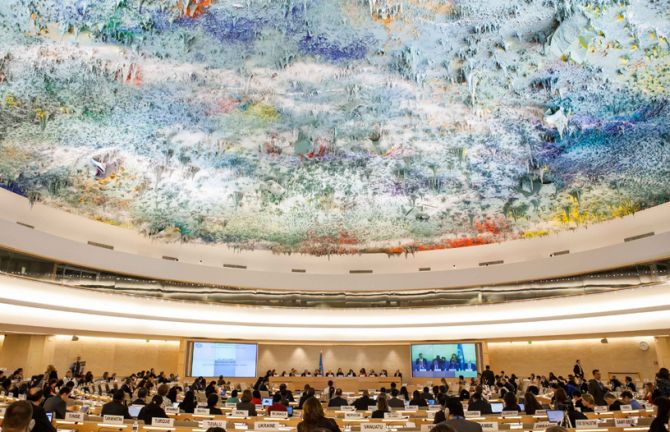
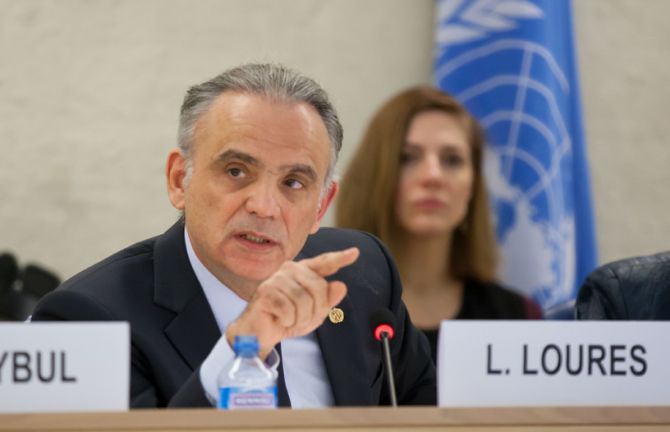

Update
Putting human rights at the centre of the AIDS response
11 March 2016
11 March 2016 11 March 2016The Human Rights Council held a special session in Geneva, Switzerland, on 11 March to discuss progress in and challenges of addressing human rights issues in the context of the AIDS response. The panel discussion mandated by Human Rights Council resolution 30/8 took place less than three months ahead of the United Nations General Assembly High-Level Meeting on Ending AIDS, which will take place in New York, United States of America, from 8 to 10 June.
The panellists agreed that the greatest advances in the AIDS response had been made in areas of the world where public health provision was rooted in a respect for human rights. In his keynote speech, UNAIDS Deputy Executive Director, Luiz Loures, stressed that the AIDS response continues to be an instrument for challenging social injustice. He urged countries and all stakeholders in the AIDS response to place human rights and the voice of those most affected by HIV at the centre of the AIDS response. Participants said that evidence clearly shows that a lack of respect for health-related human rights leads to poorer health outcomes and the transmission of HIV. Discrimination, stigma, violence and other human rights violations continue to undermine efforts to end the AIDS epidemic.
The panel called for rights-based responses to AIDS, universal health coverage to ensure equitable access, availability of medicines for all, an end to discrimination in health-care settings and increased investment in human rights programmes. There were also calls to eliminate punitive and discriminatory laws that lead to violations of human rights and poorer health outcomes by driving key populations away from HIV services. The panellists stressed that without addressing deeply entrenched inequalities, including gender inequality, and ensuring full enjoyment of sexual and reproductive health and rights, the world will not end the AIDS epidemic.
They concluded that the United Nations General Assembly High-Level Meeting on Ending AIDS represented a critical opportunity for the global community to reiterate its commitment to a human rights-based Fast-Track approach to ending the AIDS epidemic. This year marks the 20th anniversary of the publication of the International Guidelines on HIV/AIDS and Human Rights, which provide guidance on ensuring the respect, protection and implementation of human rights in the context of HIV.
Statements were made by around 40 representatives of states, United Nations agencies and nongovernmental organizations acknowledging the progress made in the HIV response and highlighting key legal and human rights challenges and barriers still to be overcome. A summary report of the panel discussion will be prepared for the General Assembly to take into consideration ahead of and during the United Nations General Assembly High-Level Meeting on Ending AIDS.
The panel was chaired by Bertrand de Crombrugghe, the Vice-President of the Human Rights Council. The keynote speaker was UNAIDS Deputy Executive Director Luiz Loures. The panel also included: Kate Gilmore, United Nations Deputy High Commissioner for Human Rights; Ayu Oktariani, from the Indonesia AIDS Coalition; Nana Oye Lithur, Minister for Gender, Children and Social Protection of Ghana; Jorge Bermudez, Vice-President of Fiocruz, Ministry of Health of Brazil and member of the United Nations Secretary-General’s High-Level Panel on Access to Medicines; Mark Dybul, Executive Director, Global Fund to Fight AIDS, Tuberculosis and Malaria; and Dainius Puras, Special Rapporteur on the right of everyone to the enjoyment of the highest attainable standard of physical and mental health.
The moderator was Pedro Afonso Comissário, Permanent Representative of Mozambique to the United Nations Office and other International Organizations in Geneva.
Quotes
“AIDS is unfinished business. Specific populations and communities—often the most fragile and marginalized—continue to be left behind. The upcoming United Nations General Assembly High-Level Meeting on Ending AIDS has the power to deliver on the promise of ending AIDS and leaving no one behind. The 2016 Political Declaration must be firmly grounded in the values and principles of human rights, non-discrimination, dignity and social justice.”
“These are the real human faces—the people who fail to get access to justice, remedies for human rights violations or legal redress. They face increased vulnerabilities to HIV; human rights violations are committed against these key populations, the prevalence of gender-based violence is high and there is assault, violence, discrimination, disgrace and poverty. Advocacy, research, direct human rights interventions at all levels, using international, regional and national laws and conventions, are the most effective strategies to assist them.”
“We realize that efforts to tackle the AIDS epidemic cannot be separated from the fulfilment of human rights of people that are most affected. We need to empower, we need to encourage and, most importantly, we need to listen to the communities and respect each human being. We call upon global leaders to rally national leaders so that human rights and sound public health are the key approaches in providing services for people living with HIV and other key populations. Stop dehumanizing and criminalizing us!”










